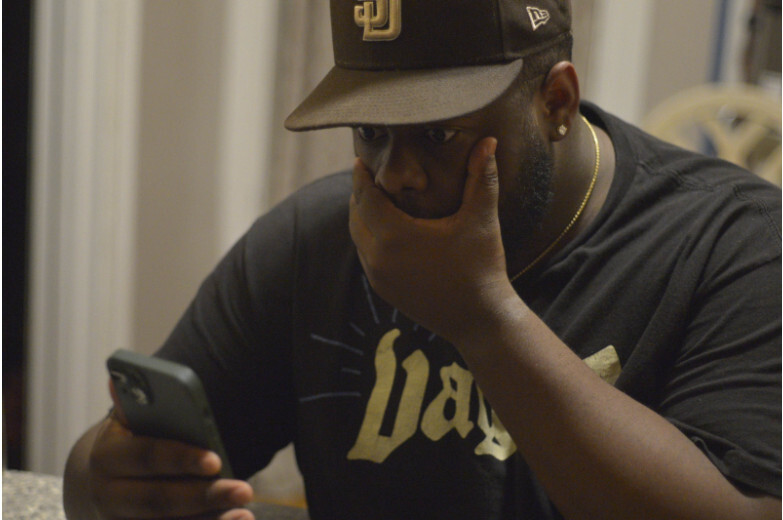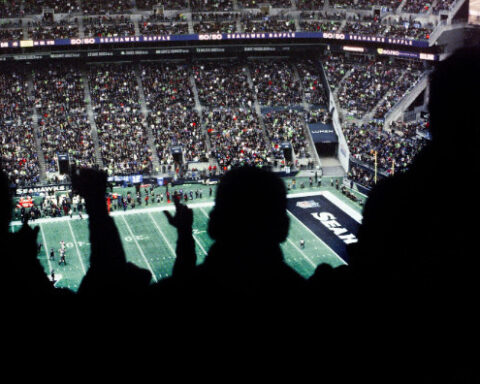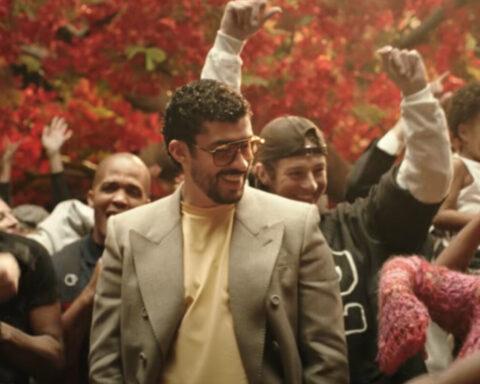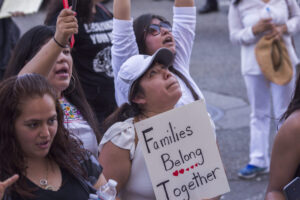Serenity Hinton, a 16-year-old ROTC student from California, is training to be in the National Guard. She could have been a forensic photographer, a firefighter, or a policewoman, but she’s come to terms with joining the National Guard instead.
She juggles many responsibilities. She hasn’t had it easy, from being new to Baltimore to problems at home, while also managing the rigor of work as a film student at the Baltimore School of the Arts.
With the specter of wars looming, she’s conflicted about the choice she’s made to join the National Guard.
“Going through hardships isn’t new to me, so I don’t see my life as a lot,” Hinton said about her resolve to make do, like she’s used to doing, if she has to go to war.
She’s not alone in her worries about conflict and war around the world. Young people she knows and their families are bracing themselves for what may come next.
The global tensions with Iran, constant conflict between Gaza and Israel, and conflicts in Ukraine and Sudan have brought up anxiety for many young people.
Research confirms that the psychological impacts of militarization do not begin when a soldier is deployed. A NIH review in 2023 found that even distant war can contribute to depression and generalized anxiety. When students feel helpless their stability and their ability to control their own lives shifts.
Hinton’s main reason for joining the National Guard was inspired by her grandmother, who has been her primary support system for most of her life.
“I joined the National Guard because of her recommendation, so I can have a better future and have my head on straight, she was really that support beam for me, holding me up,” Hinton said about her grandmother bolstering her confidence.
But even with strong family support Hinton, like many ,is fearful of what may happen to her and her colleagues.
Throughout decades of American conflict, one major by-product rings true: fear among young adults. Whether war is happening,or a distant thought, the mental toll often rests heavily on the shoulders of young adults.
Kyle Bibby, one of the co-founders of the Black Veterans Project understands that fear firsthand.
Bibby serves as the chief of campaigns at “Color of Change” and as a political partner with the Truman National Security Project. His commitment to justice is what led him to join the military.
He enlisted when he was 18 years old. At that age he said he considered himself a “hot head.”
He was deployed to Afghanistan in 2009. During his time in combat, he experienced anxiety and PTSD.
Bibby experienced numerous episodes in which he dreamed about his time in combat. These episodes caused him to grit his teeth so much to the point where he dislocated his jaw.
“I’m only in the Army for the benefits,” Hinton said. “I don’t want to be out there killing people. That’s not why I signed up.”
This sentiment is common. Many young people join the military to pay for education, financial security, or for health care. However, the difference between motivation and the mission can be confusing for a young adult.
It’s not just active duty soldiers that are anxious. Students and young adults that are not in the military report similar spikes in stress when war topics surge on the internet. This trend parallels what Howard University psychologist Darren Bernal describes more commonly as “anticipatory trauma,” emotional injury caused by the threat of harm, rather than by harm itself.
Black Veterans Project Founders Richard Brookshire and Kyle Bibby both served in Afghanistan — Brookshire during the Obama-era troop surge, Bibby as a commanding officer. For them, the misery wasn’t just violent. It was institutional.
“When I got to Afghanistan, it was clear we were there for corporate reasons,” Brookshire said. “It wasn’t to liberate anybody. It was oil, business and propaganda.”
The prejudice and hate toward LGBTQIA+ in the military and people of color produced what Brookshire called “a more corrosive anxiety” than combat itself.
“Sometimes the worst part wasn’t war,” Bibby said. “It was knowing we weren’t done even after Osama Bin Laden was assassinated. And the military doesn’t care if you’re 18, it just needs you ready.”
Their opinions are part of a broader shift within the ranks of post-9/11 veterans, where several have become outspoken critics of the very war they were once a part of. Brookshire and Bibby are not alone; more and more are directing their efforts towards education, activism, and organizing.
A 2022 study published by the NIH found that students enrolled in military-affiliated programs reported significantly higher levels of stress, especially when international tensions escalated unpredictably. These students are “more likely to anticipate future harm,” the researchers concluded, “even if no concrete deployment is planned.
“Fear isn’t always bad,” Bibby said. “It can keep you alive. The question is: what do you do with that fear?”
“Kids should be asking why,” Brookshire said. “Why are we always the ones who need to fight the war?”
Baron Foreman is a reporter for VoicesofTomorrow.news through the Howard University Multicultural Media Academy. He attends Baltimore School for the Arts in Baltimore, MD.











